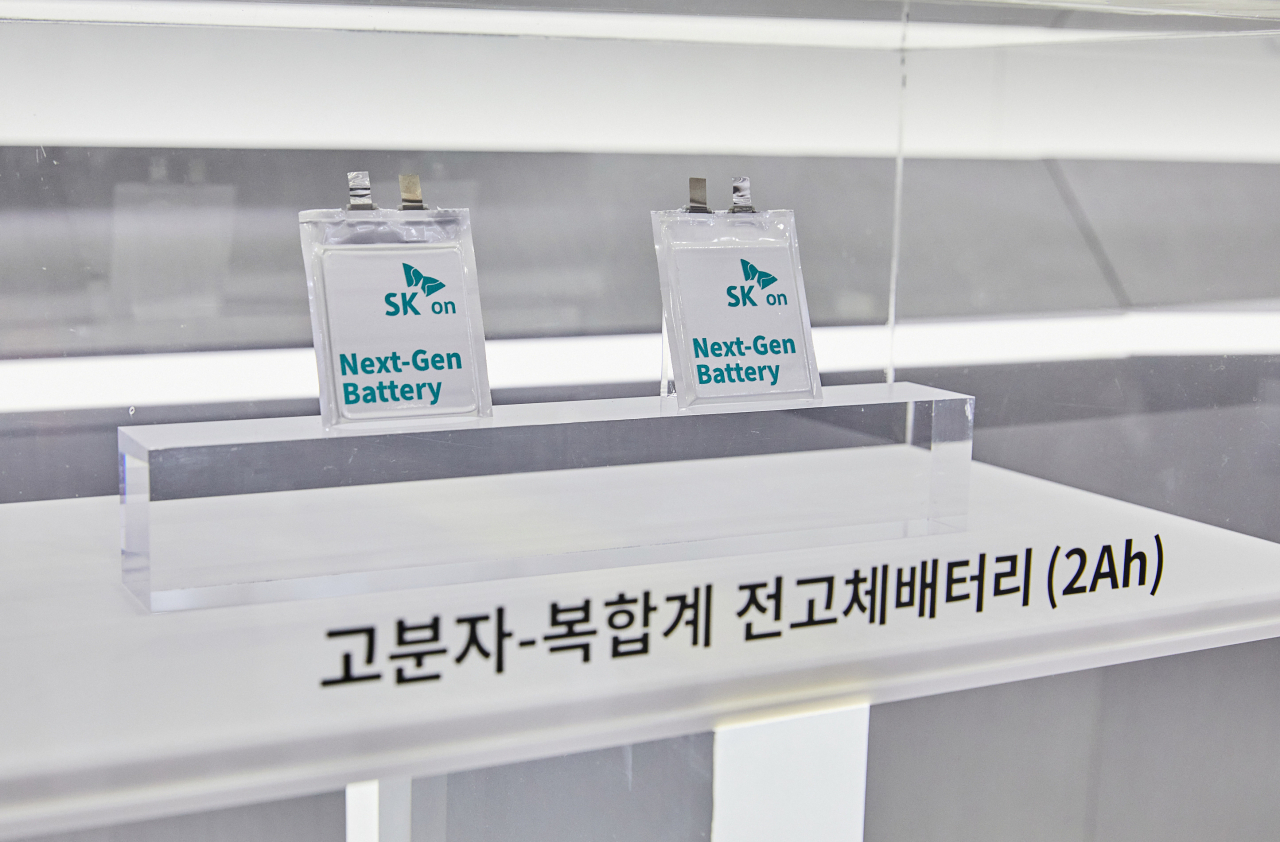SK On co-develops more advanced lithium-ion conductivity
By Moon Joon-hyunPublished : Aug. 31, 2023 - 15:05

SK On announced on Thursday that it has developed in collaboration with Dankook University an innovative solid-state battery component that is expected to significantly extend battery lifespans and reduce charging times, with implications across industries, from portable devices to electric transportation.
The component is a new oxide-based solid-state electrolyte called lithium-lanthanum-zirconium-oxygen, or LLZO, and boasts the highest lithium-ion conductivity to date. The findings of the research team, led by materials science and engineering professor Park Hee-jung from Dankook University, were featured in the scientific journal Advanced Functional Materials.
Lithium-ion conductivity denotes the speed at which lithium ions traverse within an electrolyte. A higher rate indicates a stronger battery performance and quicker charging speeds.
Traditionally, higher conductivity comes at a cost, making the battery less stable or more prone to issues like short circuits. However, by fine-tuning the microstructure of the new LLZO electrolyte, the team increased its lithium ion conductivity by 70 percent -- setting a new global benchmark -- while maintaining stability.
The stability comes partly from the characteristic of oxide-based solid electrolytes, which possess superior chemical stability despite having lower ionic conductivity than their sulfide-based counterparts.
This characteristic diminishes their reactivity with anode materials, and crucially restricts the formation of lithium dendrites on the anode surfaces. Dendrites can instigate short circuits and potential fires if they pierce the separator and make contact with the cathode.
While the upper limit for operating voltage in traditional lithium-ion batteries hovers around 4.3 volts, this new solution can potentially elevate that ceiling to 5.5 volts. This enhancement could subsequently boost battery capacity by approximately 25 percent.
Beyond applications in all-solid-state batteries, this electrolyte might also enhance next-generation batteries like lithium-sulfur and lithium-air, transitioning them into all-solid-state designs.
"This isn't just a step forward; it’s a leap. The new solid-state component paves the way for batteries that are both powerful and reliable," said Dr. Choi Kyung-hwan, lead researcher of SK Innovation's next-generation battery center in Daejeon.
To further this advancement, SK On has plans to unveil prototypes of two types of all-solid-state batteries by 2026 and initiate commercial production by 2028. Their pilot plant for next-generation batteries, located at its research and development center in Daejeon, is projected for completion next year.




















